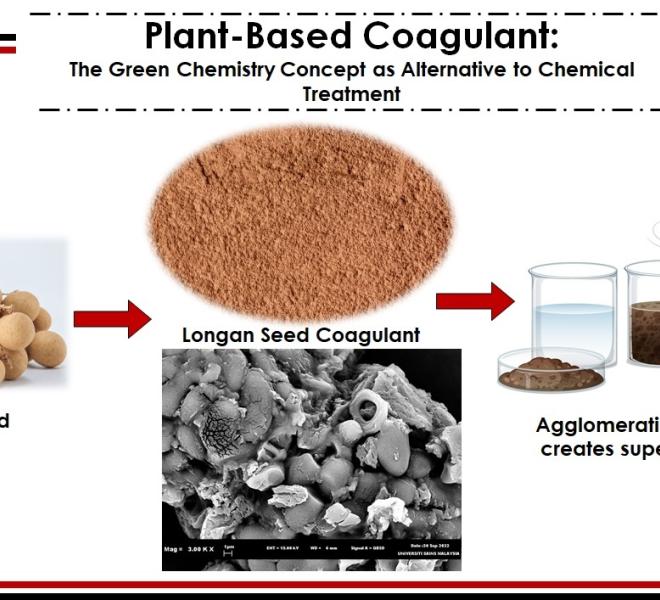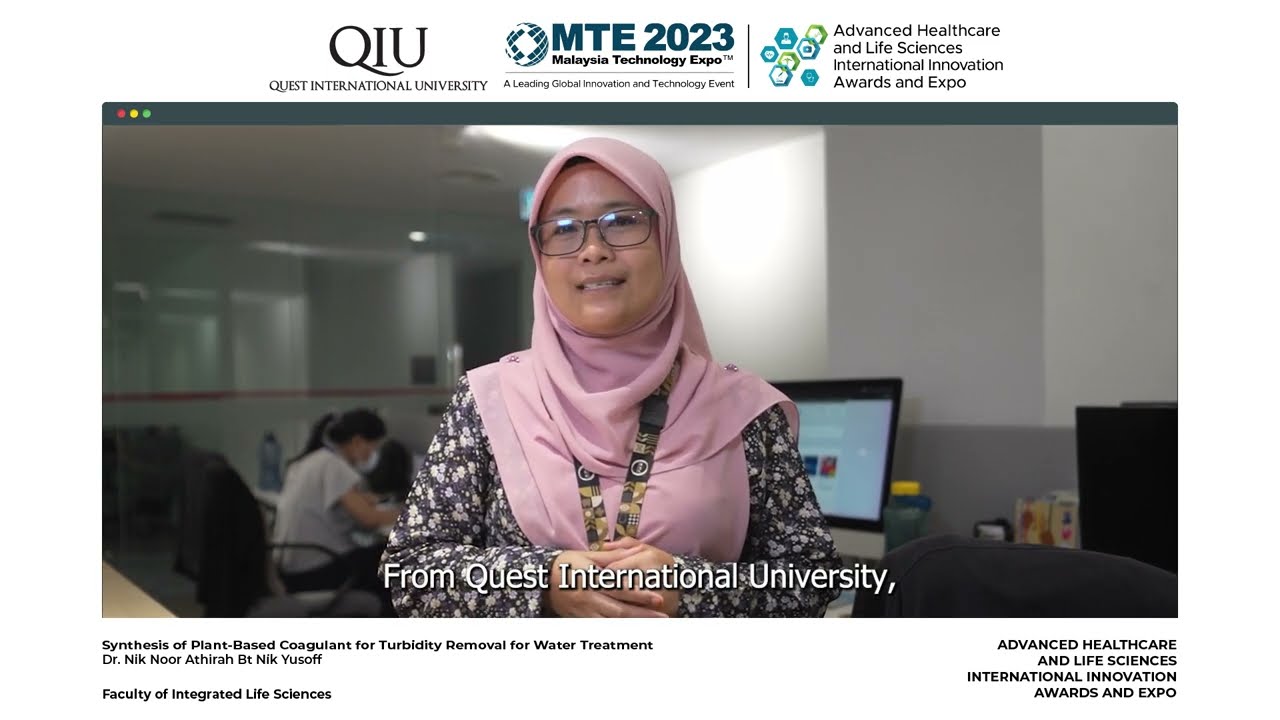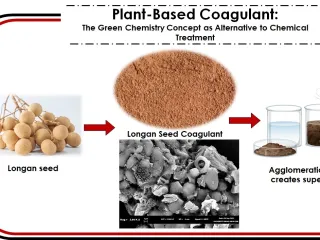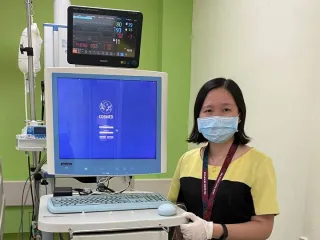The green chemistry concept fulfils the need for a safer, alternative to replace chemical coagulant which is known as plant-based natural coagulants. Natural coagulants, mainly those being derived from plant sources have shown promising results, and can offer a lot of benefits. These benefits include non-toxic, non-hazardous and potentially to increased effectiveness if applied with a small amount of alum, and they are an inexpensive additive for increasing settling velocity, and reducing the coagulant dosage required. However, among a lot of the plant materials experimented to become coagulants, almost no studies exist regarding the use of Longan fruit seeds as a plant-based coagulant for turbidity removal. Thus, this study would like to identify Longan's potential as a coagulant, and also test out a simple method of coagulant synthesis, which is inexpensive, requires minimal equipment, and could be applied in the rural community. This study successfully synthesized a plant-based coagulant from Longan fruit seeds. In terms of application, the coagulant was tested to remove turbidity from water. Overall, the coagulant displayed relatively good coagulation activity. In this study, the operational parameters observed included the type of coagulant solvent, coagulant dosage, initial water turbidity level, initial water pH, rapid mixing time, slow mixing time and settling time. In general, under neutral conditions, the coagulant displayed removal efficiencies between 23.6 % and 31.9%, and the highest turbidity removal efficiency obtained in this study was 46.7%, which occurred once all operational parameters were modified. This study also able to provide more in-depth information regarding the behavioural patterns and characteristics of a plant-based coagulant synthesized from Longan fruits seeds, and it could be suggested that Longan fruit seeds can be applied as an environmentally friendly coagulant aid to conventional chemical coagulants. Water demand is high in Malaysia, thus, there is a need to ensure the water being supplied is clean and safe to drink. In order to accomplish this, water treatment needs to be conducted, and coagulation is an important step in that treatment. However, the use of conventional chemical coagulants like alum has posed several concerns in recent years. Natural, safe, plant-based type of coagulant has gained attention as it is seen as a cheaper, more sustainable source of coagulants.In Malaysia, there is a high demand and production of tropical fruits for local consumption, or to be exported. Thus, a large production of fruits ultimately leads to a large generation of fruit waste, mainly consisting of peels and seeds. Thus, this research on Longan's seed was identify as a good potential as plant-based natural coagulant. The application of Longan seed plant-based natural coagulant possesses high potential which is inexpensive, requires minimal equipment, and could be applied in the rural community.










Comment